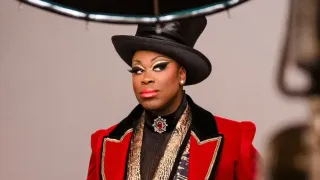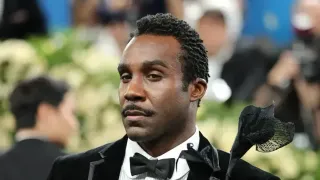December 17, 2024
'Queer Eye' Has Already Moved on from Bobby Berk – And Berk Chafes at His 'Erasure'
Kilian Melloy READ TIME: 2 MIN.
Bobby Berk came out swinging after Netflix yanked his icon.
The pushback came after "Netflix announced the new Queer Eye icons you can pick for your profile to celebrate the new season of the show, which now includes an icon of newcomer Jeremiah Brent," The Tab reported.
Perhaps more remarkable than the addition of Brent, though, was the disappearance of Berk's icon – and Berk bit back, evidently incensed about the "erasure."
Though it's since been deleted, according to The Tab, Berk took to the comments of the Insta post including Brent's icon but not his own.
"Wow... Y'all really went and erased my icon instead of just adding Jeremiah?" Berk's comment reportedly said. "Damn. I'm done."
Though Berk's comment had vanished, Reddit preserved a screenshot.
Bobby Berk's comment on Queer Eye's instagram: "Wow... Y'all really went and erased my icon instead of just adding Jeremiah? Damn. I'm done."
byu/Creative_Sea2433 inFauxmoi
The Tab noted that the disappearance of Brent's icon is unusual since the streamer still includes the icons of departed cast members for other shows.
"This isn't the first time Bobby Berk has publicly shaded both Queer Eye and Netflix as just after his exit he had a huge feud with his co-star Tan France," The Tab noted.
Rumors of a feud between interior design maven Berk and fashion guru Tan France heated up with Berk not tagging France in a post. Social media users also took note of the two unfollowing each other on Instagram. Berk, however, downplayed the strife, describing it in comments to Vanity Fair as "a situation – and that's between Tan and I – and it has nothing to do with the show. It was something personal that had been brewing and nothing romantic, just to clarify that."
Rumors also swirled that France had maneuvered to install Brent in Berk's old post – speculation that France categorically denied.
Meanwhile, fans seem to have taken readily to Berk since the show returned earlier this month for its ninth season.






